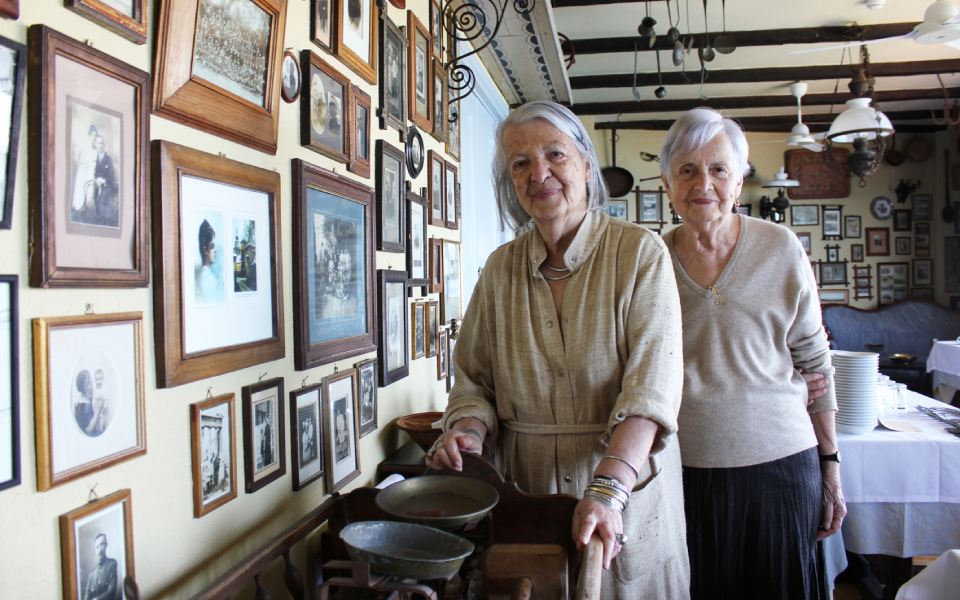There aren’t many hotels in the world like the Doma, the century-old establishment perched on the waterfront just east of Hania town centre. To ascend its curved steps and pass across its threshold is to enter a portal to the past, and if you’re looking for a place to reflect on Crete’s rich, turbulent history, look no further.
The historic Doma, which opened more than half a century ago, reopens on June 14, after being closed for more than 18 months due to the pandemic.
Decorated with exquisite antique furnishings, its walls adorned with fading framed photographs and documents, this former diplomatic consulate is the family home of its gracious owners – sisters Rena Valyraki and Ioanna Koutsoudaki – now in their eighties and nineties respectively. The hotel closed for the summer in 2020 for the first time in its 50-year existence.
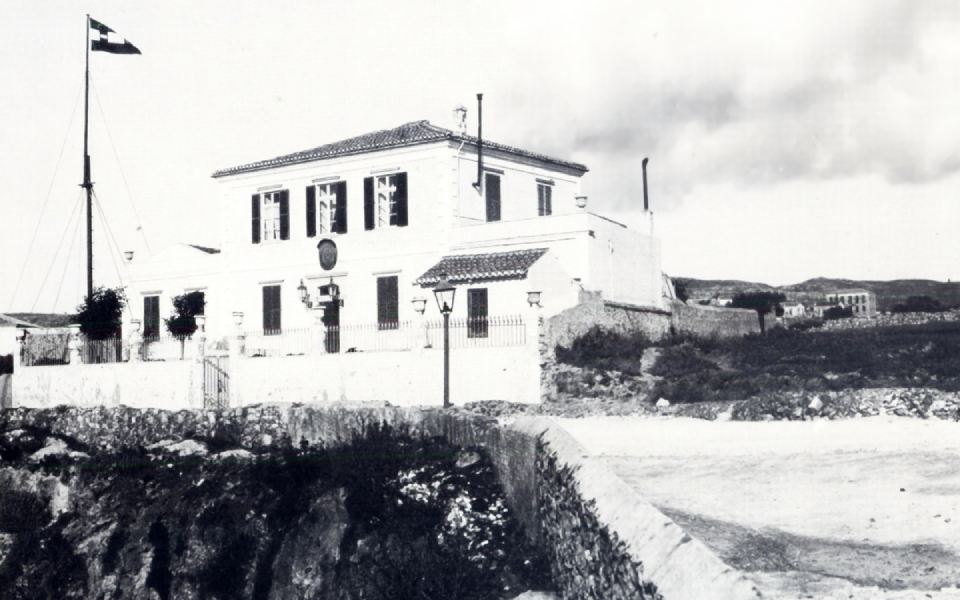
The building that is the Doma has a remarkable history, and one that makes it unique. Built in the late 19th century as the consulate of the Austro-Hungarian empire, it was like all consulates in Hania, located in the suburb of Halepa. In 1933 the consulate was purchased by Ioanna and Rena’s grandmother for her daughters Evangelia and Paraskevi.
But the property would be the Koutsoudakis’ home for just a few years. In 1940 the British military requisitioned the house, paying rent, for it to become a British vice consulate. It turned out to be a short-term arrangement.
After the German invasion of Greece in April 1941, on May 20, the Nazi invaders fell from the skies in their thousands over Crete. The Battle of Crete had begun. With the battle over by June 1, the Germans took their spoils of war – one of which was the British consulate. The surrender of Hania was given by the town’s mayor to the German general Friedrich von Heydte.
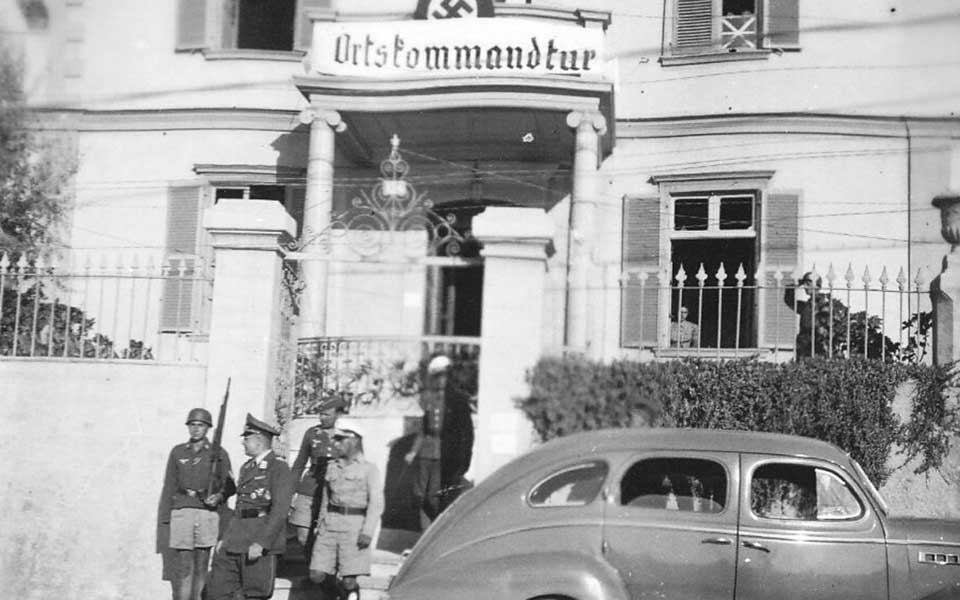
© Dimitris Skartsilakis collection.
For four long years of occupation the building was a command centre for the German army. Meanwhile, the sisters were taken to live with relatives in Elos, a village in the White Mountains, where they were safer.
Athens saw the Germans leave in October 1944, but ‘Fortress Hania’ would remain under Nazi control until 9 May 1945. The German surrender of the town would be the final act of World War II in Europe, but not even Hania’s liberation meant the sisters could return to their rightful home.
The British authorities came back, turning it once again into a consulate in order to manage British interests in post-war Crete. It would not be until the late 1940s that the Koutsoudakis family were able to return.
The years passed and Ioanna and Rena in adulthood began to rebuild their lives. It was in the late 1960s that they embarked on a labour of love – to turn their home into a hotel.
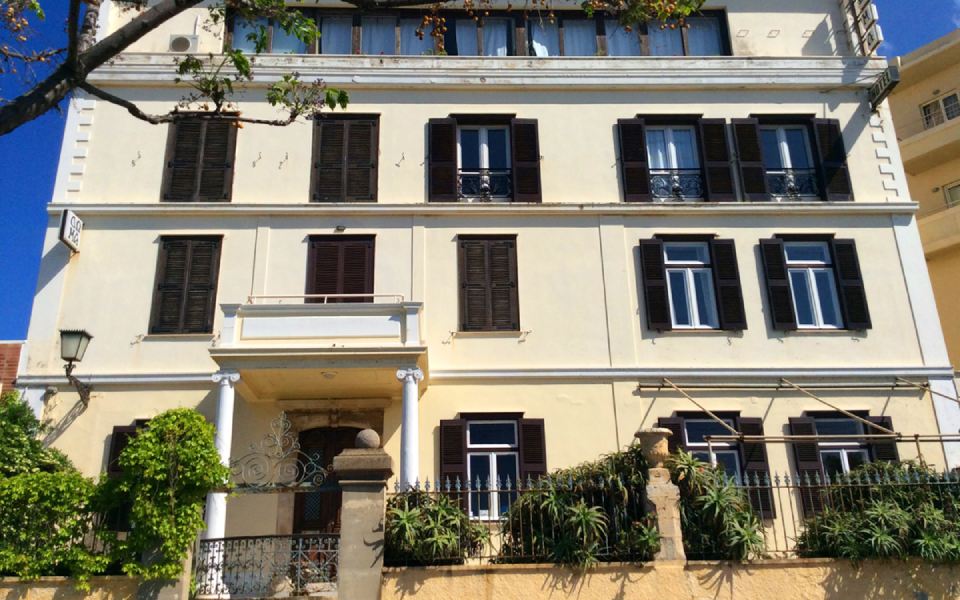
© Michael Sweet
The Doma Hotel opened its doors in December 1971. Soon after, word began to spread of its unique charm. Artists, celebrities, politicians and poets came, drawn to the building’s story and its genteel hosts. The Doma’s reputation as one of the most loved and extraordinary hotels in Greece grew steadily. Until the late 1980s the Doma was open year-round, but today – in normal times – only between April and November.
Reopening is a momentous event for Ioanna and Rena and their dedicated staff. The sisters deliberated long and hard as to whether it was practical to reopen at all. Would there even be enough bookings to make it worthwhile?
But they have missed their guests and the daily pleasures of running the hotel, and they have missed sharing their historic home. Last month they decided: It wouldn’t be easy, but it was time for the Doma’s old iron gates to be unlocked.
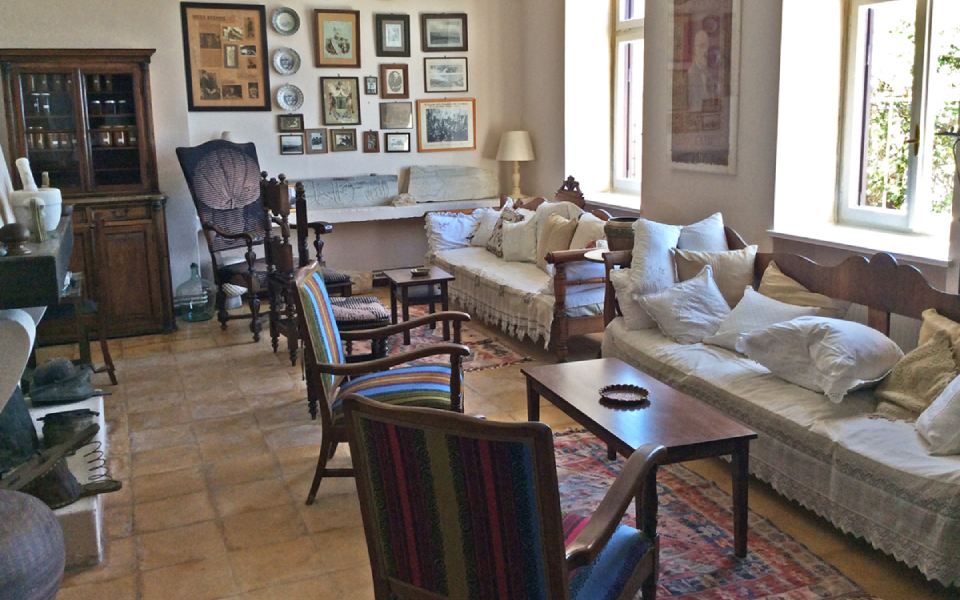
© Michael Sweet
And as they prepared to welcome guests once more, Rena and Ioanna spoke to Greece Is about their experience of the pandemic, and their delight about reopening – after another turbulent chapter in their remarkable lives.
“It’s been a very sad situation,” said Ioanna, “and we can only hope things will get better. It just wasn’t financially possible to open last summer. It was sad and disappointing for us, with so many reservations cancelled.”
“We missed working, and it felt very lonely during the lockdowns. The Doma was always so full of people,” added Rena.“The lockdowns reminded me of the war. With the Hania streets so quiet, it was like the curfews the Germans made.
“In the lockdowns when climbing the staircase, surrounded by the old photographs and portraits of my ancestors, it brought back so many memories – of the history of our home and family.”
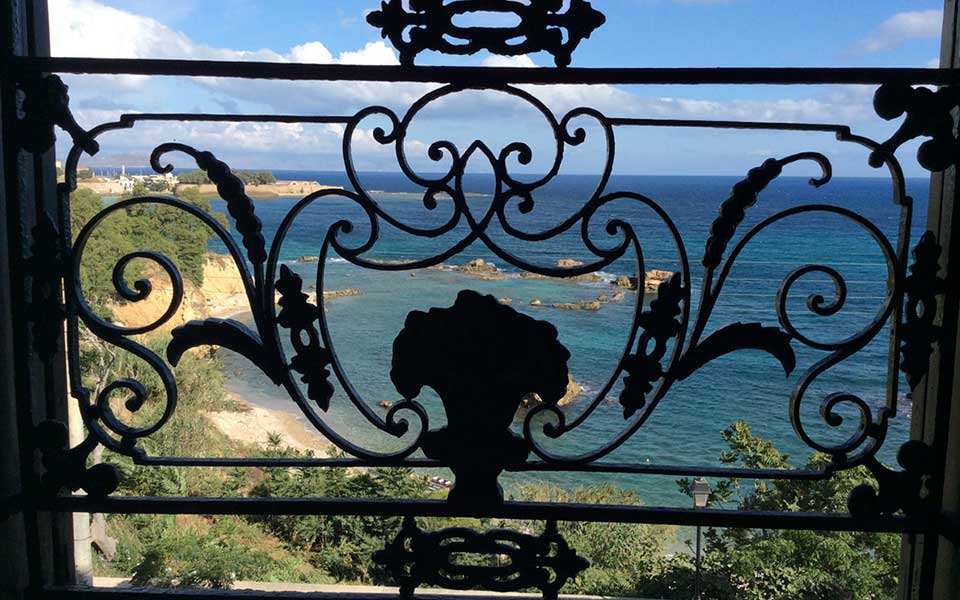
© Sophia Troullinou
As is the case throughout their lives, Ioanna and Rena made the best of it. “The time wasn’t completely lost, we organised some improvements, and that was a small remedy for the endless monotony,” said Rena
“About reopening, it feels very good. We’ll have all the necessary procedures in place to ensure the absolute safety of our guests and staff. We know that our guests will be able to enjoy themselves and sample the Doma as it’s always been, even if there are a few extra things like social distancing. We’re planning to be open until the end of October if all goes well.”

© Michael Sweet
The Doma, a place that has experienced so many histories, is rising again.
This is a very special place. What makes it so special? Is it the beautiful fourth-floor dining room overlooking the bay; is it time spent in the dappled light of the serene walled garden; the peaceful lounge, decked in embroideries and antique rugs and the exquisite headdresses Ioanna collected on her travels. It’s all these things and more.
As the waves break on the pebbled shore below, the Doma is reopening, and its owners are once again able to offer their gracious hospitality, share their stories, and manners of a bygone era. Those who visit this summer will be fortunate indeed.

